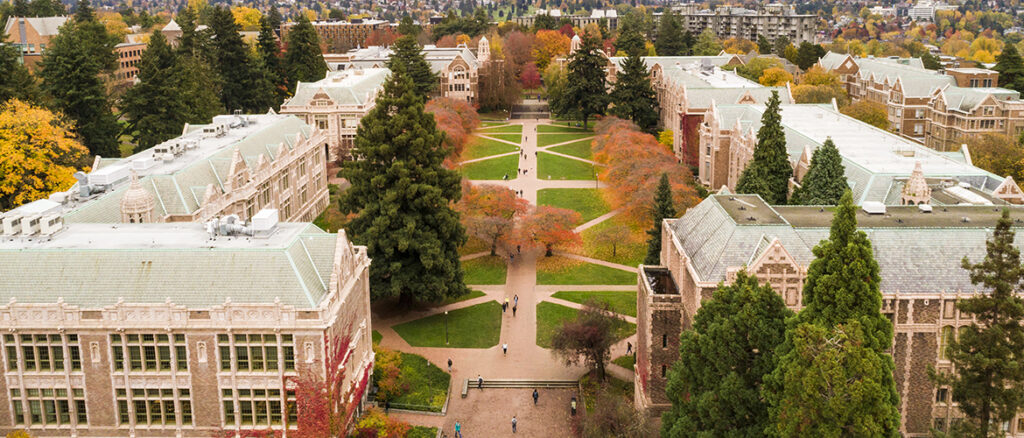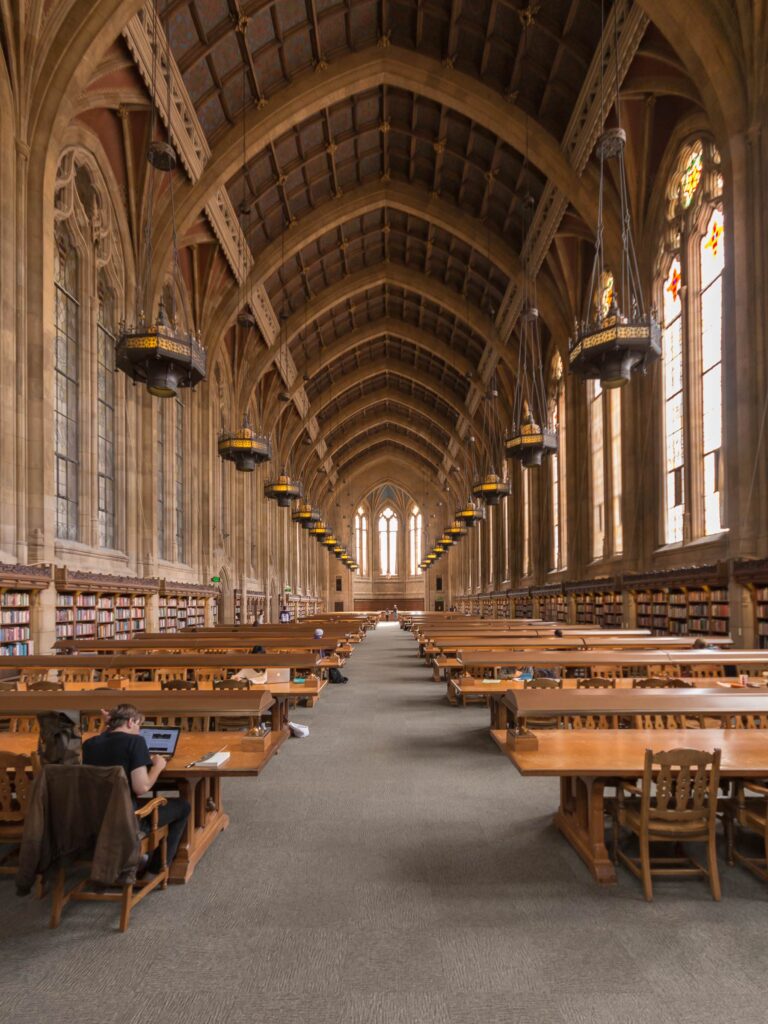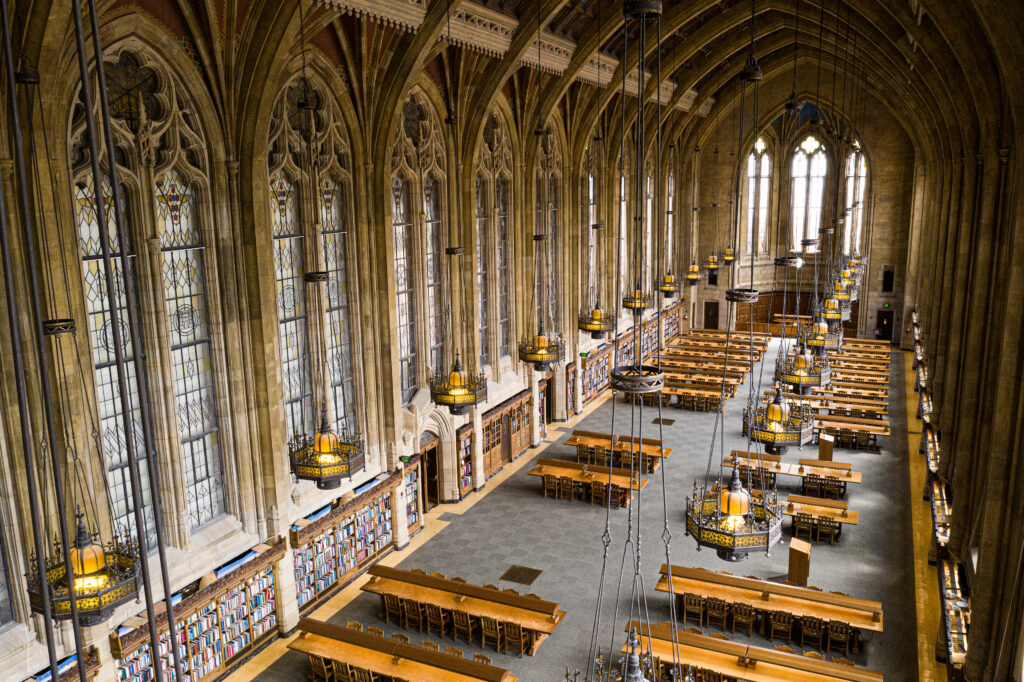Mission and Strategy

UW Libraries Strategic Plan 2023-2026

In order to align with the vision and values of the University of Washington, the UW Libraries will pursue strategies and initiatives that support the evolving needs of our user communities. The 2023-2026 Libraries Strategic Plan establishes our goals, guides our decisions and shapes our budgeting and resource allocation.
The plan defines our key priorities, allowing us to rationalize what successful pursuits we continue, what new initiatives we begin and what activities we modify or suspend in the interest of maximizing our impact on our institution and communities.
In its commitment to provide comparable experiences for all UW students, faculty, and staff, the University Libraries operates on a principle of “One Library: Three Campuses” that involves collaborative planning, centralized work functions, and shared outcomes that balance priorities in common with unique, local needs across the Bothell, Seattle, and Tacoma campuses.
Mission, Vision, & Values
Mission
The University of Washington Libraries advances discovery and enriches the quality of life by connecting people with knowledge.
Vision
The University of Washington Libraries will accelerate inquiry, creativity, and learning for global impact and the public good. We will advance student success, catalyze world-class research, amplify the diverse voices of our communities, and empower faculty, staff and students to experiment fearlessly and create new knowledge.
Values
User Centered
We align our services and programs with the needs of our communities and strive to create shared ownership of the Libraries.
Collaboration
We invest in sustained and intentional partnerships to achieve shared goals that increase the impact of education, research, clinical care and the advancement of knowledge.
Creativity
We embrace a culture of exploration, experimentation and reflection to improve services, anticipate needs and manage change.
Equity
We aspire to become a truly inclusive and equitable organization. We actively support the University in sustaining diversity, creating inclusive experiences for the UW community, and confronting institutional bias and structural racism.
Sustainability
We are committed to being outstanding stewards of our human, environmental, physical, digital and financial resources. We engage in holistic decision-making, balancing current needs, resource allocation and long-term aspirations.

AI Values Framework
We think critically about how UW scholarship is produced and shared. As artificial intelligence (AI) evolves, we hold closely these values in choosing how our scholarship is used in the production of AI tools and who we partner with on future projects.
Strategic Directions
The Libraries Strategic Plan establishes goals, guides decisions and shapes budgeting and resource allocation. The plan defines key priorities to direct ongoing work, new initiatives and required change to maximize impact for our institution and communities.
Advance Research for the Public Good
UW research attains its greatest impact on our most pressing global challenges when we advocate for open, public and emerging forms of scholarship.
Goals:
- Increase the impact of UW scholarship by investing in and promoting institutional open access publishing, open scholarship and open infrastructure.
- Advance evolving University-wide initiatives by fostering collaborative relationships in new areas of research support.
- Enhance innovative research by strengthening data services, digital and community engaged scholarship and emerging technologies.
- Support researchers’ needs by providing expertise and education for the entire research lifecycle, from knowledge creation to curation and dissemination.
Enrich the Student Experience
Students reach their full potential as learners and global citizens when we support the holistic student experience.
Goals:
- Address the student affordability crisis by participating in efforts on open educational resources and pedagogies strengthening partnerships that improve access to resources and services.
- Increase opportunities for student learning by strengthening investment in scalable, multimodal and inclusive pedagogies to teach essential information skills.
- Enhance University initiatives focused on belonging, inclusion, and the success and holistic well-being of diverse student populations through strengthened partnerships and Libraries-wide support.
- Develop and advocate for evolving library spaces that address student needs and changes in scholarship and learning.
Enhance Equitable Environments for Research, Learning and Working
Students, faculty, staff and community members from diverse backgrounds thrive when we prioritize inclusivity in research, learning, working environments, and Libraries daily activities.
Goals:
- Strengthen campus-wide partnerships to support social justice and equity-focused research, teaching, learning, clinical care and staff development.
- Elevate the voices of historically underrepresented communities at UW and in the Pacific Northwest by partnering to create, preserve and increase access to culturally-relevant resources.
- Improve access to resources, spaces, and services through continuous accessibility improvements.
- Foster an equitable and inclusive culture for Libraries staff through programs, mentoring, hiring, retention and training.
Accelerate Scholarship and Learning through Responsive Collections
The work of students, clinicians and researchers is advanced when we develop and steward collections that align with evolving and future needs.
Goals:
- Enhance scholarship, learning, and university goals by diversifying and aligning collections with research and curricular needs.
- Strengthen users’ ability to efficiently find and use information by improving discoverability and access to diverse and interdisciplinary collections.
- Expand the quantity and range of information resources available to users and support sustainable physical collection growth by leveraging multi-institutional partnerships.
- Maintain outstanding collections by enhancing digitization strategies and proactively managing the lifecycle of collections through acquisition, preservation and deselection strategies.
Prioritize Employee Development and Evolving Ways of Working
The evolving needs of our communities are better met when we invest in the development of our staff and transform our ways of working.
Goals:
- Improve communication and strategic decision-making to foster effective and equitable ways of working.
- Transform our working practices to enable effective collaboration and a holistic perspective on individual work.
- Strengthen capacity and clarity for a participatory organizational structure based on shared values, priorities and vision.
- Invest in developing, recruiting and retaining staff to strengthen skill sets in support of changing university needs.
